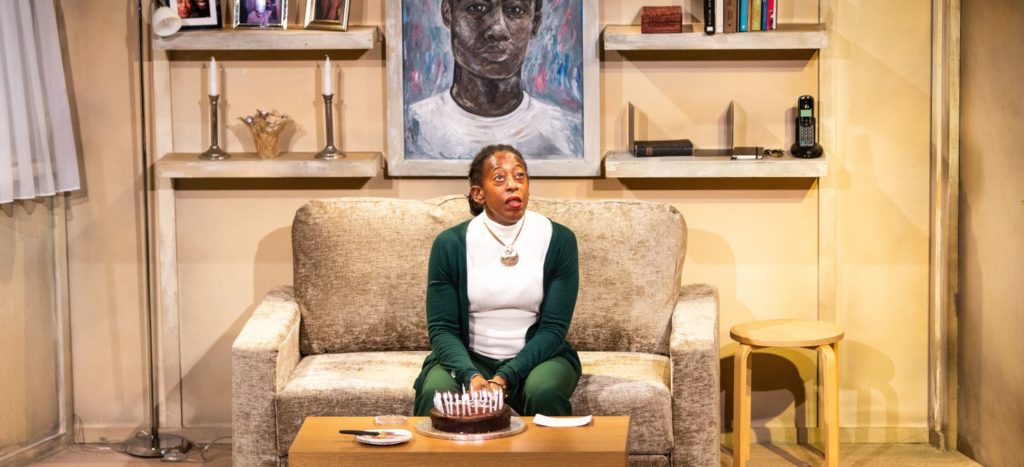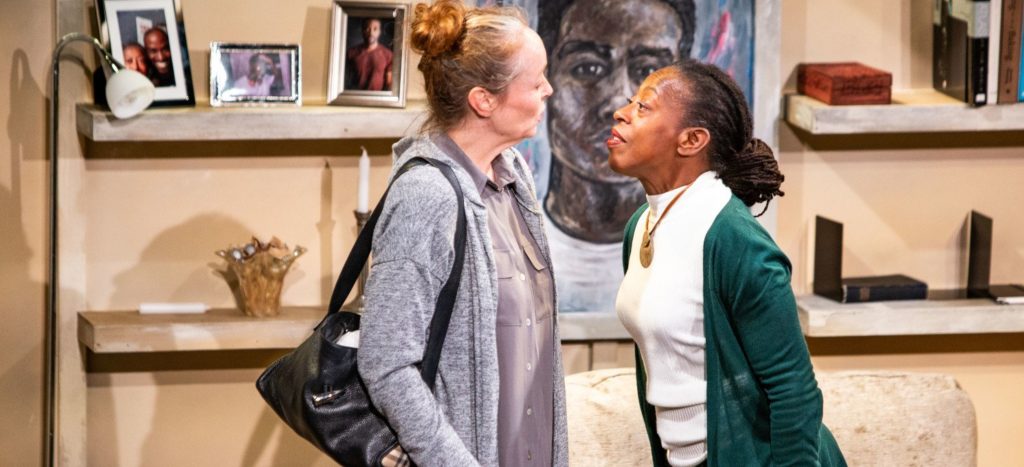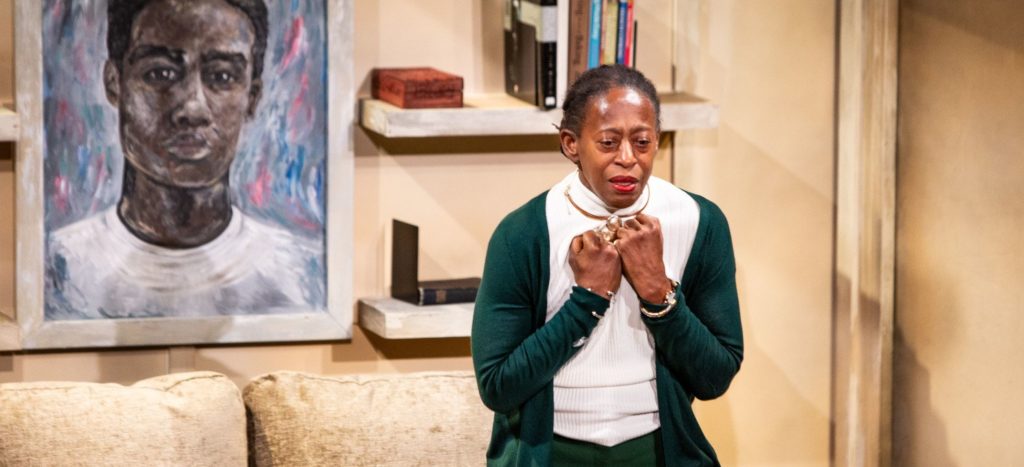
TWO mothers united in sorrow, unable to escape the tragedy of knife crime, try to protect their sons, one in life, one in death, in Mel Pennant’s new play, Seeds, at Leeds Playhouse.
Running in the Bramall Rock Void until Saturday, it tells the stories of those who fight to keep their children safe from the world they grow up in, when knife-crime offences in England and Wales have reached a record high and hate crimes have more than doubled over a seven-year period.
Shortlisted for the Alfred Fagon Award, Seeds is billed as “a courageous play that looks at difficult subjects of racism, violence, death and grief. It describes a hate crime and uses the N word, all of which may be a trigger for people who have suffered as result of the above and may be difficult for some audience members”.
The setting is Michael Thomas’s birthday, when his cake sits in his mother’s living room, its candles burning undisturbed. Jackie wants to clear her conscience, while Evelyn has a big speech to deliver on the 15th anniversary of Michael’s fatal stabbing. Are some things better left unsaid?
Seeds is presented by Tiata Fahodzi and Wrested Veil in association with Leeds Playhouse, Soho Theatre and Tara Finney Productions.
Here, first, writer Mel Pennant and, then, director Anastasia Osei-Kuffour discuss the play.

How would you describe the play, Mel?
“Two mums, either side of a racist murder, come together and explore what happened to their sons 15 years earlier. They go to places no-one else would take them to and,, in doing so, come to an agreed truth which is life changing for both of them.”
How would you sum up Seeds in three words?
“Rollercoaster, awkward, emotional.”
What inspired you to write the play?
“In writing the play, I was conscious that we rarely hear, in any depth, the stories of the families of people involved in tragedies and yet as a society we often judge them.
“I wanted to explore those stories through two mothers on either side of such an event and, in doing so, interrogate the very essence of motherhood.
“Those two women have a conversation that couldn’t happen without the other: they can face the depth of their despair and longing, how they define themselves in a space that is becoming even more limiting.”
Why is it important we discuss knife crime from the perspective of mothers?
“Because it’s families, parents, mothers who are left with the aftermath. When the headlines are over, they are the ones who deal with the reality. I wanted to explore that reality.”
What do you want audiences to take away from Seeds?
“I hope audiences see my play as the beginning of a conversation. I hope that it enables audiences to see and engage with the complexities and layers of the issues discussed.”

How would you describe the play, Anastasia?
“Seeds is a tense drama where two mothers fight for their sons, bargaining with each other to get what they desperately need and, in the process, bare their souls, leaving them both changed by the encounter.”
How would you sum up Seeds in three words?
“Tense, emotive, shattering.”
What initially drew you to the play?
“Its subject matter. It explores racism and motherhood in a way that really resonates with me: placing racism in the context of families, how the ‘seeds’ of racism can grow in families, ‘take root’ and have horrifically dangerous consequences – a point that I feel is so important to highlight.
“It also considers how far a mother would go to protect her son. Having reached an age where I’m thinking about having children, I worry a lot about how safe the world is, whether I can keep my children safe when I bring them into this world, I think about what I would do to protect them.”
Why is it important we discuss knife crime from the perspective of mothers?
“They are left dealing with the shattering aftermath for years and years after; they bring life into the world only to see it cut down. There’s a need to highlight these people so that, as a society, we can think more about how we support them to survive the deepest of tragedies.”
What do you want audiences to take away from Seeds?
“I want to inspire greater awareness of the ‘seeds’ of racism in families in the hope they can be rooted out before they cause disaster.
“I believe people can change and grow. People with racist views – if they would allow themselves to see it – can change and help to change others if they choose to take a stand.
“I want people to see the play as a warning that we all need to take xenophobia seriously and act to stamp it out. Discourse-challenging racist and xenophobic rhetoric and events, like this play which allows people from diverse backgrounds to be in the same space to face these issues, will help and play a part in creating change.”
Seeds, Bramall Rock Void, Leeds Playhouse, until Saturday, 8pm plus 2.15pm Thursday, and 2.45pm, Saturday. Box office: 0113 213 7700 or at leedsplayhouse.org.uk. Age guidance: 14 plus.
